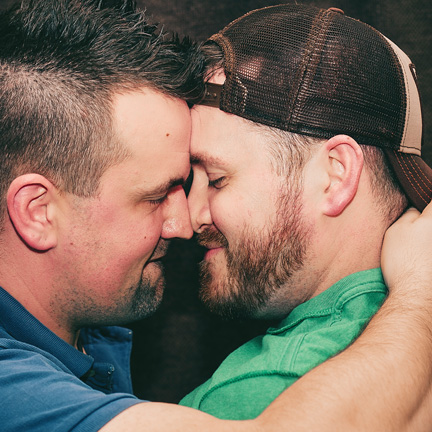Am I at risk?
You have increased risk for HIV infection if you:
- had unprotected anal sex (that is, sex without using condoms) with HIV positive guys or guys whose status you don’t know
- injected drugs or steroids, during which equipment (such as needles, syringes, cotton, water) and blood were shared with others
- have had a bacterial STD (syphilis, gonorrhea or chlamydia) in the last year
- had unprotected sex with someone who has any of the risk factors listed above
What should I do if I think I was exposed to HIV?
- RIGHT AWAY, you should get PEP, a course of medication to keep you from developing HIV. PEP works BEST if started within 2-3 hours, but it must be started within 72 hours after exposure. If you live in or near King, Pierce or Snohomish Counties, call 206-744-4377 (8am-5pm). After hours, if you were exposed in the course of your work as a health professional, call 206-726-2619 and ask for the HIV doctor on call. For all other exposures after hours, go to the Harborview Hospital Emergency Room at 325 9th Ave in Seattle.
- Both RNA and the newer antigen tests can usually detect HIV within two weeks after infection.
How long should I wait after possible exposure to get tested?
There is a short period of time just after infection when HIV tests won't be able to detect signs of HIV even if you are infected. This is called a "window period." If you get tested too soon (during the window period), your results may be wrong. How long you need to wait depends on the type of test you take. The window period for different tests can vary from two weeks to three months. The HIV home test kit sold in drug stores has a window period closer to three months. It can take this long for your body to make enough antibodies for the home test to show you have HIV. Keep in mind that during the window period, you can still pass the virus to another person. Early infection is one of the most infectious periods of time because of the amount of virus in the body. We recommend that if you’ve had an exposure, you should get an HIV antigen test or an HIV RNA test as early as two weeks after the exposure.
How does someone get HIV?
You can only be exposed to HIV by exchange of body fluids like blood and semen. HIV can be transmitted by:
- Having sex without a condom
- Sharing needles for injection drug use
- Sharing razors, toothbrushes, needles for tattooing or other objects that may have blood on them
- Vaginal fluids
- Breast milk
- Blood transfusions (extremely rare today)
- Organ transplants (extremely rare today)
What about a support system?
Emotions around a diagnosis of HIV can be complex. It's a good idea to think ahead about the process of actually getting your results. Do you think you'll need extra support? If so, plan a phone call to a friend, partner, or family member after you receive the news. Or if you wish, have someone come with you to your appointment.

What if I test positive?
1. |
Find any emotional support you need. It may help to talk with family, friends or a professional counselor. Or you may need to spend a little time on your own before talking about it with others. In either situation, if you need support, you can get it at:
King County
Pierce County
Snohomish County
|
2. |
Find a healthcare provider. Even if you feel healthy, find a healthcare provider and talk about treatment options or other health issues you may have. Getting treatment for HIV is easier than ever, so there's no reason to wait to get into care. |
3. |
Tell any previous sex partners. It’s important to let all your sex partners know that they should get tested for HIV. If they’re infected, they’ll probably want to know. Plan to tell everyone you’ve been with since your last negative HIV test. If you feel uneasy doing this, Public Health can help. A Public Health counselor can walk you through how to tell a partner or even be with you when you break the news. A counselor can also contact partners anonymously to explain that a previous sex partner has tested positive for HIV and offer free HIV testing. No information is given about you. All of these services are free. For help contacting sex partners call:
|
